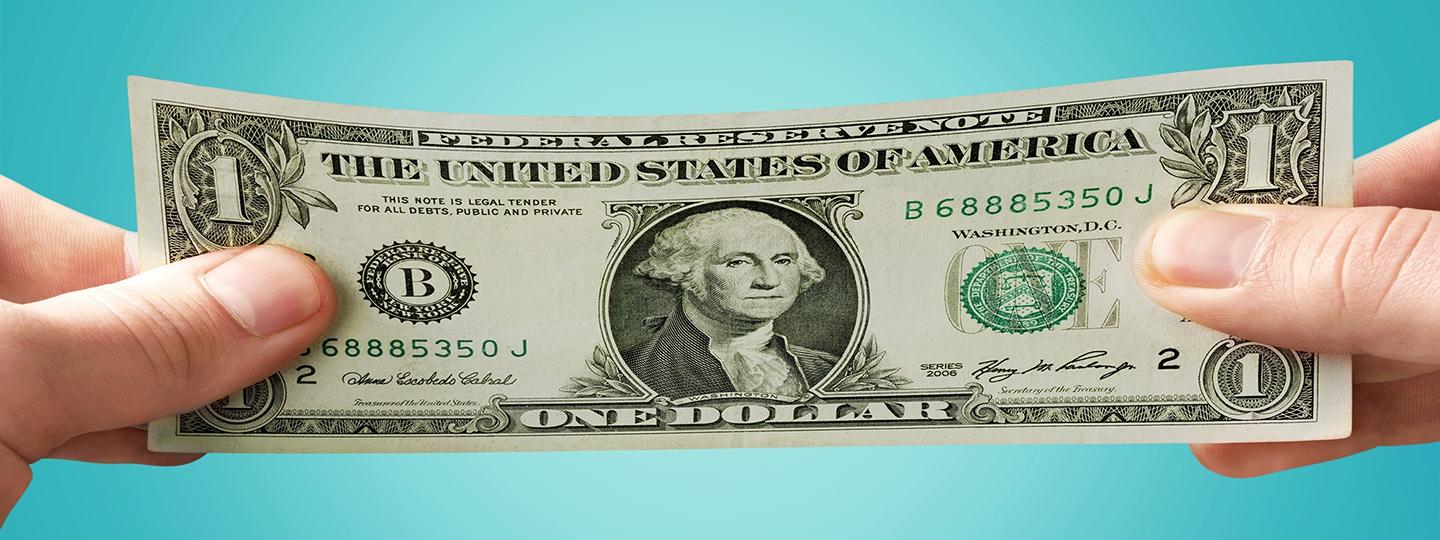Drop the pennies and stretch your dollar

Do you pick up pennies from the pavement? You might save your back by learning ways to stretch your dollar.
When it comes to saving, Darriel Donnell believes there's always a way: clip a coupon, download an app, or Google a question.
Donnell works with the Texans Recovering Together crisis counseling program, which offers resources to the community during COVID-19. This spring, she led the "Stretching Your Dollar During a Pandemic" series through the San Jacinto College CPD Community Engagement division.
Financial struggles exist outside pandemics too. Whether you live on a fixed income or just want to become thriftier, Donnell has ideas for you.
Q: What are your top tips for shopping and eating out?
A: Before you go shopping, look for coupons and rebates and check weekly sales ads in mailed flyers or online. Ask employees if there are any discounts when you're in the store. Most stores — like Kroger and Target — have their own loyalty programs with apps you can download to save money.
If you join AARP, they have discounts to restaurants and other places with their card. [When we checked, annual memberships ranged from $9-12/year depending on the term length.]
Q: Let's talk utilities and phones. What advice do you have?
A: You want to lock in a fixed electric rate. A lot of people didn't have a rate locked in, and they were being gouged after the winter storm. If you can't afford to pay your bill, reach out to your provider to break up the payments, request an extension, or find out whether you're eligible for any discount programs.
With cell phones, a lot of older people use them for emergencies only. You're paying for features you're not even using. Switch to a lesser-name provider like Cricket, etc. They're using the same towers, but you're getting a cheaper rate.
Q: How can you slash insurance costs?
A: You don't have to wait until your current home or auto policy expires before you look elsewhere. If you switch to a different provider, you'll often get an intro rate for the first year. You need to stay on top of when that rate expires.
If you're retired, you may have time on your hands to take a few days, make a few calls, and save some money. If you don't ask, they're not going to offer discounts.
Q: How do you start making a dent in debt?
A: Add up all your debts, then negotiate with creditors to get a reduced rate or to get some debt dismissed. Refinance your debt at a lower rate.
Set a debt payoff goal. You can use the avalanche method, paying down debt in order of highest interest rate. Or you can go with the snowball method, paying down debt in order of smallest balance to give you nice psychological wins along the way.
Q: Free entertainment ... what does that look like?
A: Look to your local library. There are thousands of free books, DVDs, and music.
If you don't want to leave home, from the comfort of your couch you can look at national parks online through Google Earth — places like the Grand Canyon and Yosemite National Park. You can tour Buckingham Palace or Windsor Castle. If you're into animals, the San Diego Zoo has live cams. Disney also has virtual tours of its theme parks through Google Street View.
Take free educational classes at Harvard through coursera.org or edx.org. Or find countless workouts like yoga on YouTube.
Q: What's the easiest way to start saving?
A: The easiest thing in the household is to kill the energy vampires — unplug stuff that's not being used. That takes little effort. Then grocery shop with an app. Compare prices — both unit prices and looking at grocery ads. It just takes a few minutes a day to come up with ways to save.
Q: Where can I learn more about this topic?
A: Google. Type: "How do I save money on ______?" That's how I find my ideas.
Free Resources
San Jac offers free financial webinars, health and wellness workshops, and more for seniors.
Learn more by calling Community Engagement at 281-476-1893 or emailing community.engagement@sjcd.edu.
